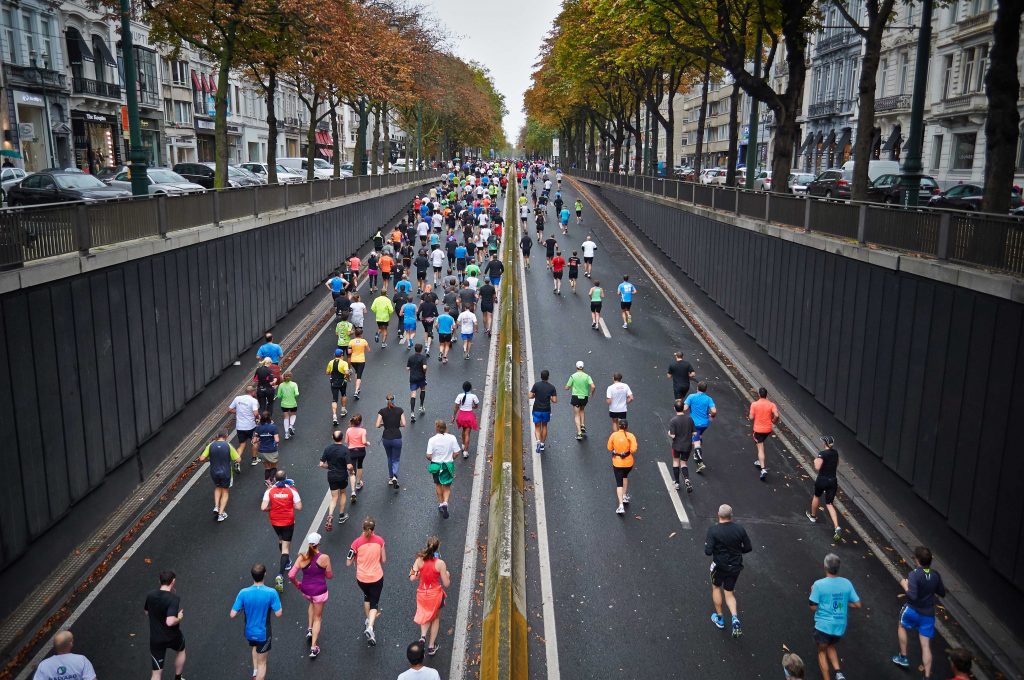Fuel Before Exericse
How can YPB help if you’re an early bird? When you wake up in the morning, your liver is virtually depleted of glycogen (carbohydrate energy); you used it all up during the night! If you exercise before eating in the morning, you’ll probably find you can feel a little sluggish. You might not even get out the door! If you don’t have time to eat breakfast first, then the YPB Before bars are a handy way to give you an energy boost 15-30 minutes before you start to boost performance. Maybe have a tea or coffee with it to make a great morning exercise routine.
Tip: if you get stomach problems when you exercise after breakfast, try avoiding dairy and see if that helps!
Just like with early morning training, you might prefer to train during lunch time or after work. The YPB Before bars are perfect for that energy top up about 20 minutes beforehand. Many people get an energy dip and feel exhausted if they eat about an hour before exercise. That’s a normal reaction and is due to your blood sugar dropping. Try eating either 2 hours or 20 minutes before exercise instead.
Tip: If you start a training session an hour or so after eating and you feel that energy dip making you want to stop, try adding in a few short sprints toward the beginning of your session. The high intensity effort triggers a rise in blood sugar.
During Exercise
Our recommendations for optimal carbohydrate intake depends mainly upon the duration and intensity of the exercise. The longer your session and the harder you push, the more carbohydrate you will need in order to maintain and optimize performance. There are two key principles to keep in mind:
You can burn carbohydrate faster than you can ingest it so the longer your planned session the more you should be eating right from the beginning – do not wait until you feel hungry or tired, at that point it’s already too late.
Our recommendations assume you want to maximize performance toward your personal best every day and feel great, not just eat enough to avoid hitting the wall or feeling hunger pangs.
Quick Training Sessions <30min
You don’t need any carbohydrate for these sessions, even if they are high intensity. You might want to bring something with you if you are exercising from a fasted state such as in the morning before breakfast. However, you should still aim to take in carbohydrate and protein for recovery afterwards to get the best out of your training.
Tip: If you want to make this session feel easier and push yourself harder, take a small amount of carb in a bar or sports drink. Once your brain tastes the incoming energy it knows it can relax and lets you push harder and with reduced sense of effort.
Most of Your Training: 30-75 min
Most of us tend to do sessions in this bracket, maybe longer at the weekend. You will perform better by taking in some carb, even if it’s just a small amount like 20-30 grams, or one YPB During bar. If you are exercising hard, it follows that you will probably need more carbohydrate as your session progresses. Approximately 30-40 grams of carbohydrate should be enough if you’re pushing hard for 60-75 minutes.
Tip: 1 YPB During bar if you’re closer to 30 minutes, 2 YPB During bars if you’re closer to 75 minutes and working hard!
Even Longer Training Sessions: 75 min +
If you are doing a session between 1-2 hours in duration, you will likely need 30 grams of carb per hour. That means, for a 2-hour session of moderate intensity, we recommend up to 3 YPB During bars (1 every 40 minutes), 2 might be enough if you are very metabolically efficient or exercising at lower intensity. This level of carbohydrate will improve your performance so that you are exercising as hard as you can and not wasting that determination.
Tip: 1 YPB During bar every 40 minutes for these sessions and you’ll be getting just the right fuel to squeeze the last bit out of this session!

Over 2 hours
Once you go over the 2-hour mark, we increase our carb intake to 60 grams per hour. That is 2 YPB During bars per hour. While this may seem like a lot in the first hour of the session, this is the level required to optimize your performance toward the end – you’re planning ahead with carbs in the fuel tank that you’ll need later.
Over 2.5 hours you should increase further to 90 g of carb per hour if you can. At this point, training your gut (blog 4) becomes crucial. If you also plan on racing in events over this duration (marathon, cycling, triathlon) you can benefit enormously by encouraging your gut to learn how to handle and absorb this level of carbohydrate without distress.
Getting more from your gut: For some athletes with “elite” trained guts, it is possible to absorb carbs at up to 105 grams per hour during very long endurance events! One of the benefits of using wholefoods here is that they naturally contain a mix of carbohydrates which your gut is able to absorb much faster compared to single concentrated sugars, like glucose only for instance. Getting to that level of gut superiority takes determined practice but will pay off enormously in longer training sessions and races with outstanding performance and constantly high energy levels.
Thanks for reading! For more information on why we use wholefood in YPB bars read on to the next blog!